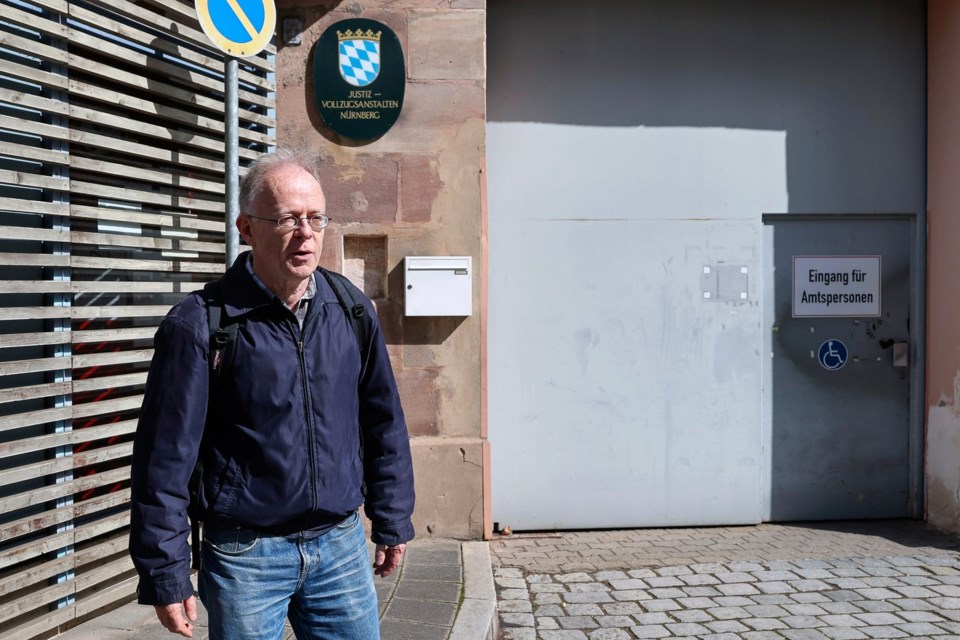BERLIN (AP) — A Jesuit priest says he prefers going to prison than paying a 500-euro ($541) fine for participating in a climate activists' street blockade in the southern German city of Nuremberg.
The Rev. Jörg Alt started serving his nearly monthlong prison sentence on Tuesday in Nuremberg.
“Today, I am starting my 25-day alternative custodial sentence in Nuremberg prison,” he said before entering the prison. “I don’t like doing this, especially as my health is no longer the best at the age of 63. But I see no alternative, because it’s the last form of protest I have left in this specific case to draw attention to important issues” such as climate change.
In November, Alt said that "as a priest, I have no income and no bank account due to my vow of poverty and that I do not want to harm the order and my fellow brothers by paying my fine,” German news agency dpa reported.
His remarks came after a Bavarian Higher Regional Court rejected his appeal to a lower court's decision and confirmed Alt's conviction for coercion for participating in a sit-in blockade.
After the court's decision, authorities repeatedly asked Alt to pay the 500 euros, before the fine was eventually commuted to the 25-day prison sentence.
The court ruling in November was in connection with a street blockade in August 2022, when the Jesuit priest and about 40 other activists blocked traffic in Nuremberg by gluing their hands to a street in front of the city's train station to draw attention to climate change.
Numerous similar protests have taken place across Germany and other countries in recent years, as activists try to draw attention to the urgency of tackling climate change. The public and political response to such road blockades has been mixed.
While some Germans have said they support the protesters’ cause, if not their means, activists have also faced violence from enraged motorists and calls for tough punishment from conservative politicians.
German Chancellor Olaf Scholz has sharply criticized climate activists as “ nutty” for drastic protests such as blocking streets or gluing themselves to famous paintings in museums.
Last year, activists belonging to one of the main protest groups, the Last Generation, announced that they would abandon the tactic and move on to holding what they call “disobedient assemblies.”
Alt has said that he had also decided to serve the prison sentence instead of paying the fine "in solidarity with those climate activists who are treated similarly by the administration and the judiciary — it may all be lawful, but it is unjust.”
It's not the first time, that Alt was convicted for his activism. In May 2023, a court also convicted him of coercion after he participated in a road blockade in Munich and ordered him to pay a small fine.
Kirsten Grieshaber, The Associated Press



